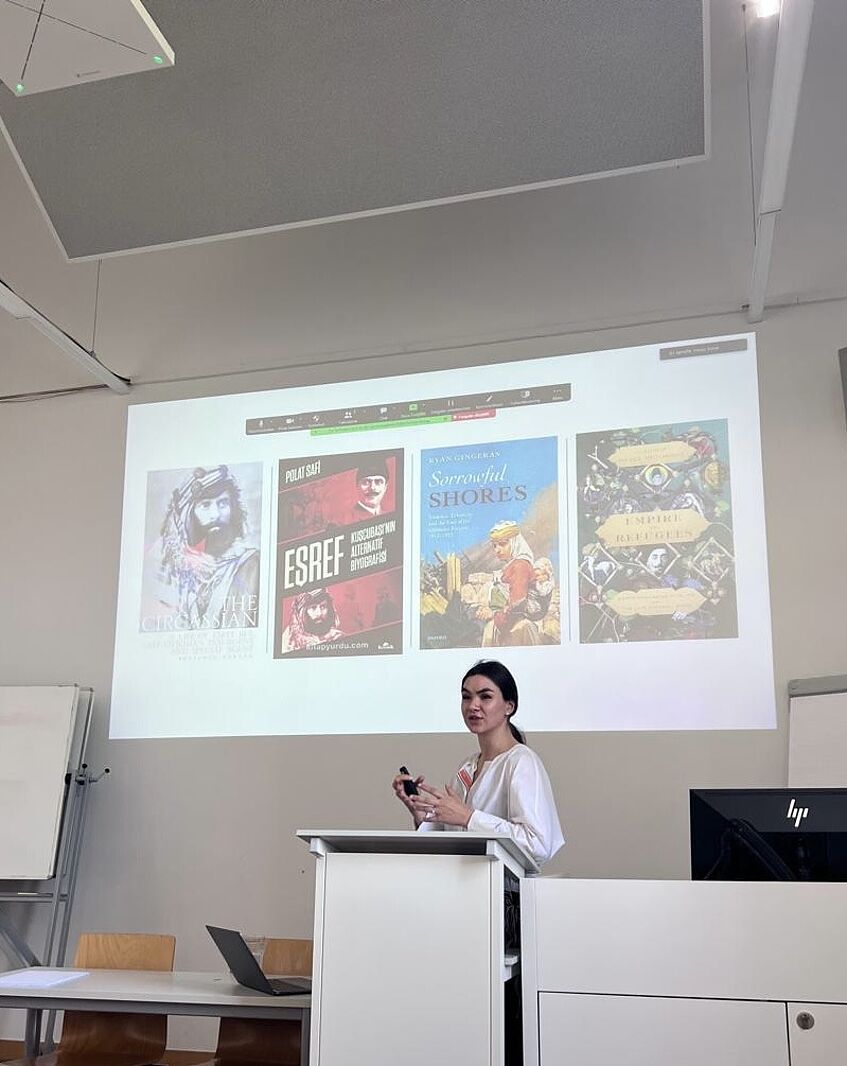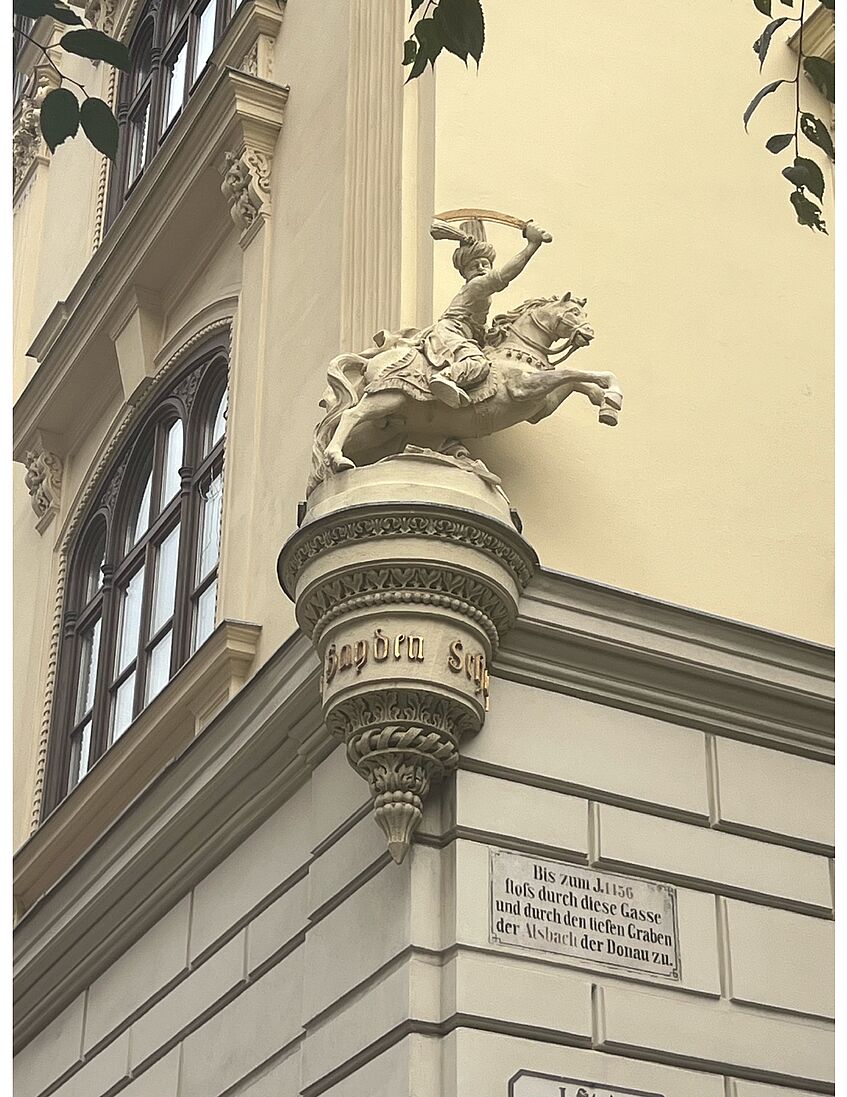Interview with Alika Zangieva (Andreas Tietze Fellow 2024)


Interview with Alika Zangieva (Andreas Tietze Fellow 2024)
Would you briefly introduce yourself?
I am a doctoral candidate in the Department of Near Eastern Studies at Princeton University. Before coming to Princeton, I worked for one year at the Middle East Institute as an Associate Editor for The Middle East Journal. I obtained my bachelor’s degree from the George Washington University’s Elliot School of International Affairs, where I concentrated in Security Policy and minored in Arabic.
I was born in North Ossetia, at the southernmost point of Russia, just over the border from Georgia. I then immigrated to the United States when I was seven years old and grew up in a quintessentially American suburb in Connecticut. One of the reasons I was interested in Vienna is that it is a crossroads between Western, Slavic, and Ottoman lifeworlds!
What are you currently working on?
My research examines the notion of “indigenous warrior populations” or “martial races” in Ottoman military institutions in the latter half of the nineteenth century. Specifically, I am focusing on the ethnic composition of irregular autonomous militias and cavalries–– known sometimes as “levend,” “çeteci,” “deli,” “sekban” or “başibazuk” forces––during the Russo–Ottoman War of 1877–78. With the help of anthropology and ethnographic methodology, I explore this military story through the case of the North Caucasian migrants (often known as “Circassian muhajirs”), whose cultural foundations, I argue, made them a crucial military pillar across the late Ottoman Empire and modern Middle East.
Why did you apply to the Andreas Tietze Memorial Fellowship?
I applied for the Andreas Tietze Memorial Fellowship after seeing a post on “X” about a statue in Vienna known as “Uncle Circassian.” Legend has it that the statue stands to honor the bravery of a Circassian Janissary, caught by Austrian troops after digging a hole into the unbreakable city during the 1529 Ottoman Siege of Vienna. I was fascinated by the fact that it is a borderland minority population that so widely symbolizes the Ottoman traces of Europe, and that it is “Circassian warriorship” that came to define the Ottoman soldier in the European imaginary.
Along with the historical importance of Vienna, I was also eager to benefit from the rigor of one of the world’s most renowned departments for the study of Turkology. I deeply resonated with the vision of Andreas Tietze himself, who “wanted to put some flesh of cultural history around the bones of etymology.” It was this commitment to bridging philological rigor with historiographical inquiry that made me really eager to apply.
How did the fellowship contribute to your research?
This fellowship contributed immensely to my research. First, I received tremendous mentorship and advise on my research from the leading experts in Turkic studies. Yavuz Köse, Janine Dağyeli, Kerstin Klenke, and Onur İnal were especially generous in their feedback. Under the instruction of Ercan Akyol and Yasir Yilmaz I got the opportunity to benefit from the Ottoman Paleography summer school, which was an awe-inspiring experience. While in Vienna I also got the opportunity to attend Paolo Sartori’s summer school on Archives of Islam in the Russian Empire, which left me equally affected by its level of philological expertise and intellectual camaraderie.
The fellowship also allowed me to access and approach my own primary sources for the first time. I spent the first month of my fellowship reading through the ego-documents of three irregular cavalry leaders during the Russo–Ottoman War of 1877–78, which is shaping up to be my dissertation chapter focus. Specifically, I got to read the memoir of Musa Kundukhov, the biography of Muhammad Fazil, and the published archives of Mirza Pasha Wasfi. All three individuals were “Circassian migrants” from the Russian Empire who later became Ottoman pashas and pioneered a trusting relationship between irregular Circassian cavalries and the Ottoman government.
There is something extremely motivating about the intellectual environment of the University of Vienna Library as well as the Austrian National Archives. I have never experienced such academic efficiency!
Do you want to publish or present your research to the academic community? How will it go further?
I am preparing to present some of my research at the Middle East Studies Association (MESA) conference as well as the Association for Slavic, East European & Eurasian Studies (ASEEES) in November.
